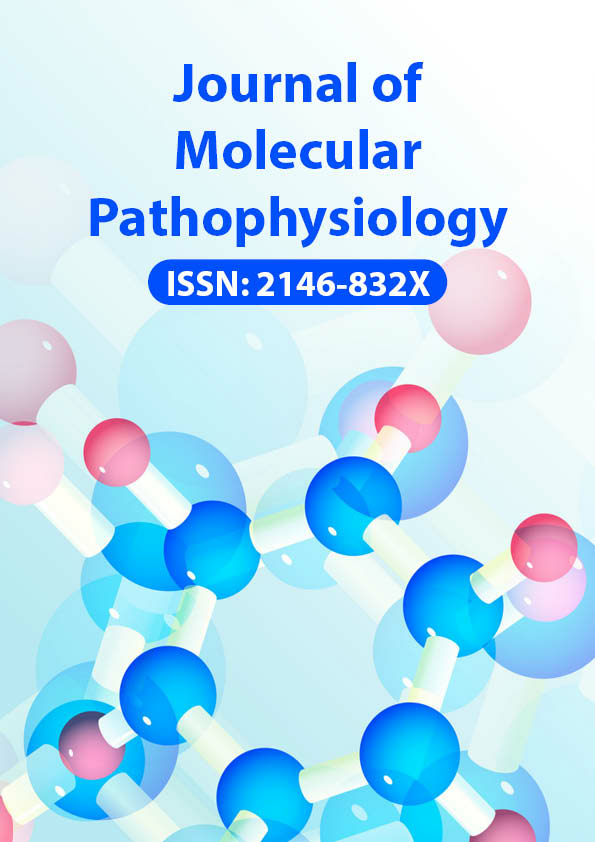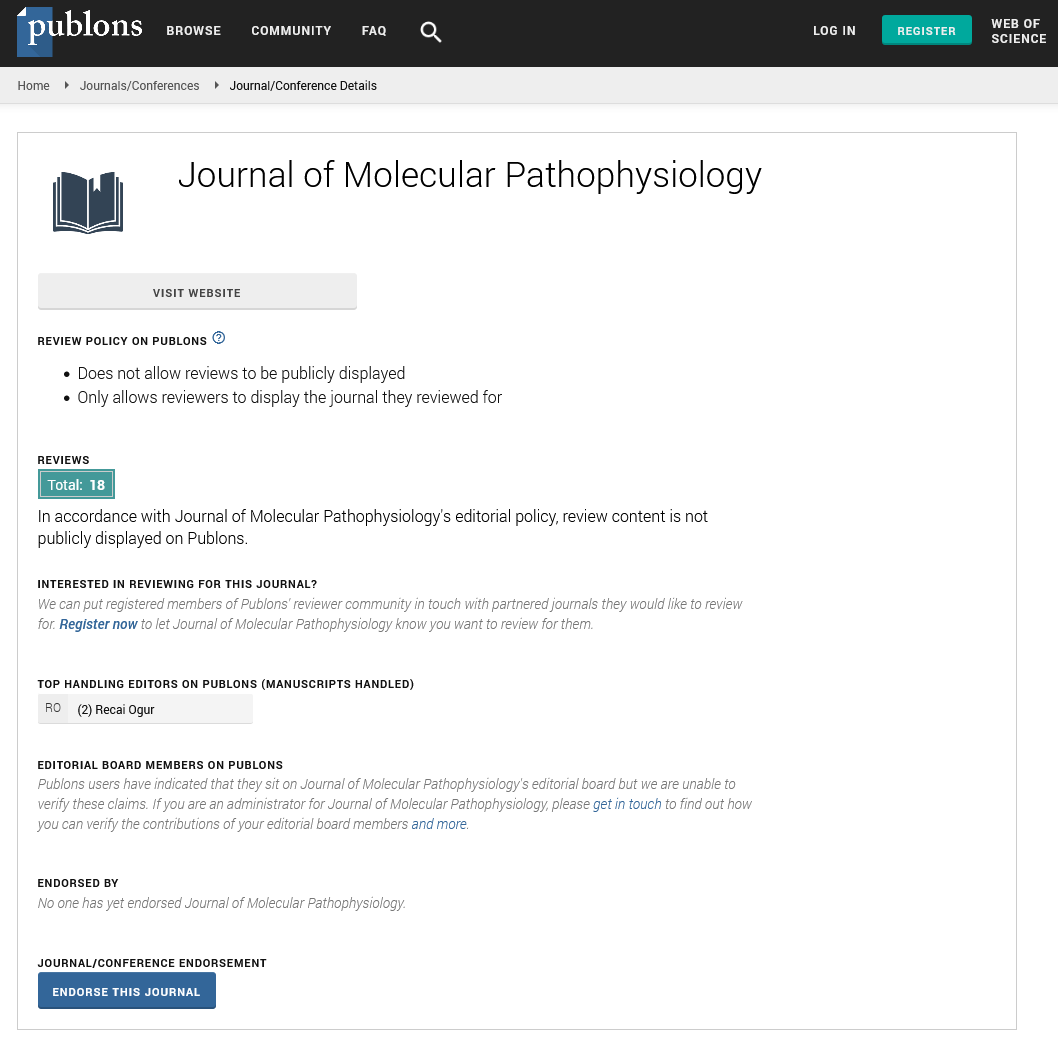Perspective - Journal of Molecular Pathophysiology (2022)
A Study on Hormonal Imbalance
Elissa Abrams*Elissa Abrams, Department of Pediatrics, Johns Hopkins University, Maryland, USA, Email: elisabrams@yahoo.com
Received: 04-Feb-2022, Manuscript No. JMOLPAT-22-41715; Editor assigned: 08-Feb-2022, Pre QC No. JMOLPAT-22-41715 (PQ); Reviewed: 23-Feb-2022, QC No. JMOLPAT-22-41715; Revised: 28-Feb-2022, Manuscript No. JMOLPAT-22-41715 (R); Published: 07-Mar-2022
About the Study
Cortisol is an important hormone that can become unbalanced as a result of stress or sickness. Cortisol is produced by the adrenal glands, which are located on the kidney’s apex. Low-intensity exercise can help reduce elevated cortisol levels. Stress has an impact on adrenal function and hormone levels. Get to know the signs and symptoms of hormone imbalance so you can recognize when something isn’t quite right with your body or mind. Hormonal imbalances can cause a number of negative symptoms, ranging from exhaustion to weight gain to itchy skin and low mood. Hormones are chemical compounds that are created by glands within the endocrine system and released into the bloodstream. When there is either too much or too little of a hormone, an imbalance occurs. Hormone levels clearly fluctuate at several phases of life, most notably during puberty and in females during the menstrual cycle, pregnancy, and menopause. They may also be afflicted by their style of living as well as favourable scientific circumstances.
Which glands and hormones are affected determines the symptoms of a hormonal imbalance. Unexplained weight gain or loss, changes in sensitivity to bloodless and heat, brittle or susceptible bones, changes in blood sugar concentration, prolonged thirst, bloating, changes in appetite, decreased intercourse drive, thinning, brittle hair and infertility are some of the symptoms associated with hormonal imbalances.
Everyone will benefit from herbal periods of hormone imbalance or changes at different points in their lives. When the endocrine glands aren’t working properly, hormonal imbalances can occur. Endocrine glands are cells that generate, store, and release hormones into the bloodstream. The adrenal glands, pineal gland, gonads, pituitary gland, hypothalamus gland, thyroid and parathyroid glands, and pancreatic islets are only a few of the endocrine glands located throughout the body that regulate various organs. Several scientific situations have been identified as having an impact on one or more of the endocrine glands. Hormonal imbalances may also be influenced by certain lifestyle choices and environmental factors. hyperglycemia, hyperactive thyroid, underactive thyroid, poor weight loss programme and nutrition, over or underproduction of parathyroid hormone, benign tumors, Cushing’s syndrome, pituitary tumors, endocrine gland injury, and so on.
Treatment for hormonal imbalances can also differ depending on the reason for the imbalance. Individuals with hormonal abnormalities may require unique types of treatment. Treatments for hormonal imbalance are typically tailored to the type of hormone in question and the consequences that come with it. Doctors utilize drugs to treat imbalances because there are a variety of medications that can both stimulate and update hormonal chemical components within the body. Hormone therapy is a common name for these treatments. Warm flashes and even growth fertility can be alleviated by medications that balance female hormones like oestrogen and progestin. Women who have high amounts of androgen, a male hormone, can take a medication to reduce their levels. Meanwhile, testosterone dietary supplements can help men overcome exhaustion, muscle loss, and other symptoms of “Low T.” In young adults who have not reached puberty on time, medications may even stimulate puberty. There are a variety of medications used to treat hormone imbalances, as well as insulin for Type I and Type II diabetes. Depending on the treatment, hormone therapy drugs are available in tablet, patch, injectable, and topical cream form, such as Oestrogen, Hormone management start-up, Hormone alternative medicines, Eflornithine, Anti-androgen medicines, Clomiphene, and other hormone-related drugs. In some circumstances, drug-based treatments may not be effective enough to address hormonal imbalances, and surgical surgery may be required. Tumors and other issues with the endocrine system that may be at the root of a hormone condition can be removed through surgery.
Copyright: © 2022 The Authors. This is an open access article under the terms of the Creative Commons Attribution NonCommercial ShareAlike 4.0 (https://creativecommons.org/licenses/by-nc-sa/4.0/). This is an open access article distributed under the terms of the Creative Commons Attribution License, which permits unrestricted use, distribution, and reproduction in any medium, provided the original work is properly cited.







